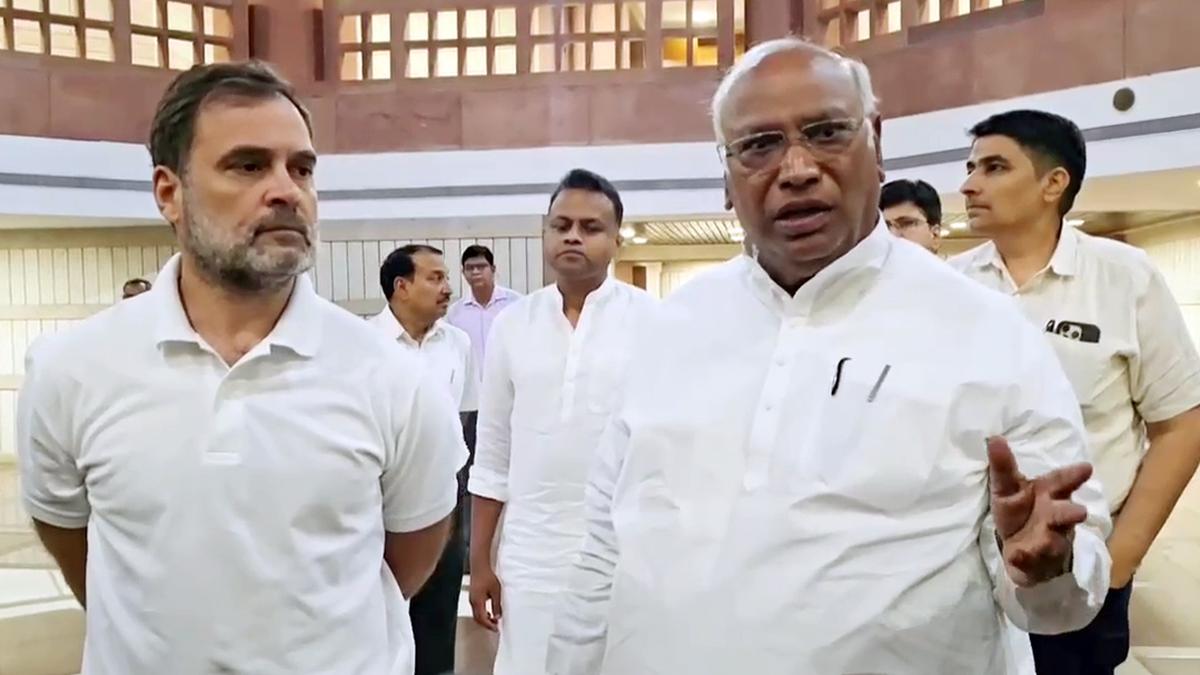
New Delhi:
Prime Minister Narendra Modi on Tuesday made a fervent pitch for putting in place a global framework for the use of digital technology and ethical use of artificial intelligence (AI), saying security cannot be an afterthought in an interconnected world. Speaking at the inauguration of the International Telecommunication Union – WTSA and India Mobile Congress here, he favoured clear ‘dos’ and ‘don’ts’ to safeguard citizens.
“There is a need for a global framework… guidelines for digital technology,” he said. “Time has come when global institutions have to accept the importance of a rule-based framework for digital technology.” Digital rules are important not just because they involve personal privacy, media disinformation, the accountability of tech giants, and other issues of societal importance, but also because trade in goods and services rely on international flows of data.
Stating that digital tools and applications are beyond any physical boundaries and no country alone can safeguard its citizens from cyber threat, the Prime Minister said, “dos and don’ts have to be framed at the global level”.
“For this, we have to work together. Global institutions have to take responsibility,” he said.
He cited the example of the aviation sector and said a similar framework is needed for the digital world.
Global aviation regulations layout a set of technical, legal, and operational requirements to ensure the safety, security, and efficiency of international flights.
Stressing the need of creating a ‘Do’s’ and ‘Don’ts’ for technology on the global level, the Prime Minister highlighted the borderless nature of digital tools and applications and urged for international collaboration in combating cyber threats and collective action by global institutions.
The Prime Minister urged the members of the assembly to create standards that are inclusive, secure, and adaptable to future challenges, including ethical AI and data privacy standards that respect the diversity of nations.
Underscoring the need for consensus and connectivity in a world marred by conflicts, the Prime Minister said India is engaged in bringing the world out of conflict and connecting it.
“Be it the ancient silk route or today’s technology route, India’s only mission is to connect the world and open new doors of progress,” he said.
The Prime Minister inaugurated the International Telecommunication Union – World Telecommunication Standardization Assembly (WTSA) 2024 at Bharat Mandapam in New Delhi. He also inaugurated the 8th edition of India Mobile Congress 2024 during the programme. He took a walkthrough of the exhibition showcased on the occasion.
The Prime Minister emphasized the need for a human-centric dimension to the ongoing technological revolution, calling for responsible and sustainable innovation. He said that the standards set today will determine the direction of the future, stressing that principles of security, dignity and equity should be at the center of our discussions.
He said our goal should be that no country, no region and no community is left behind in this digital transformation and underscored the need for innovation balanced with inclusion.
“India is one among the most happening countries when it comes to telecom and its related technologies,” PM Modi said.
Listing the achievements of India, he said that India has a mobile phone user base of 120 crores, 95 crore internet users and digital transactions of more than 40 per cent of the entire world in real-time.
India, he said, has showcased how digital connectivity has become an effective tool for last-mile delivery.
PM Modi asked sectoral bodies like WTSA to proactively take up the issue. “I would ask WTSA to deliberate on how to make telecommunications safe for everyone.” “In this interconnected world, security cannot be an afterthought,” he said.
India’s commitment towards this is amply displayed in its data protection law, and national cyber security strategy which are steps in creating a safe digital ecosystem.
World bodies need to frame standards that are inclusive, secure and adaptable to any future challenge, he said. “Global standards need to be framed for ethical (use of) AI and data privacy that respect diversity of different countries.” “It is critical that in this technology revolution, technology be given a human centric dimension. And it should be responsible and sustainable. Standards set now will determine the future course,” he said.
“So security, dignity and equity principles have to be at heart of all discussions. Our aim should be that no country, no region or community is not left out in this digital world. We have to ensure that our future is not just technically strong but is also ethically sound. The future should have innovations, as well as inclusion.” Talking of India’s experience, he said after the expeditious roll out, 5G telecom services are now available in most places across the country and work on 6G has already begun.
Giving out statistics, the Prime Minister said India has in the last decade become an exporter of mobile phones from being an importer, and has laid an optic fibre network that is eight-time more than the distance between earth and the moon.
India’s digital vision that was unveiled in 2014 rests on four pillars — making devices cheaper, connectivity reaching all concerns, affordable data and digital-first, he said.
PM Modi said India is willing to share its experience of successful building of digital public infrastructure with the rest of the world.
(Except for the headline, this story has not been edited by NDTV staff and is published from a syndicated feed.)









![Best Weight Loss Supplements [2022-23] New Reports!](https://technologytangle.com/wp-content/uploads/2022/12/p1-1170962-1670840878.png)




